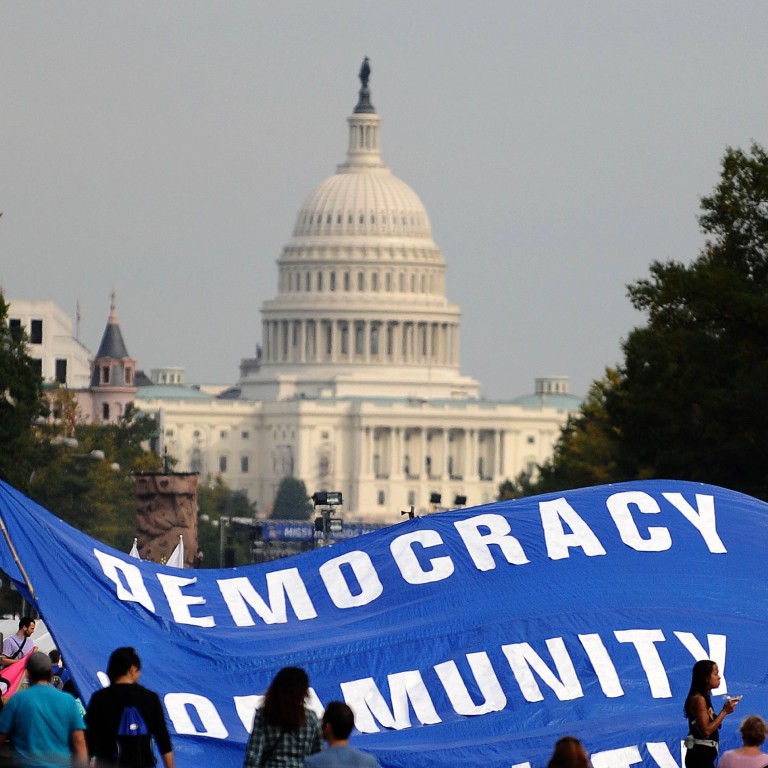
Push for 'Liu Xiaobo Street' gains traction as proposal sent to US Congress
Lawmakers asked to greenlight proposal that is likely to provoke anger from Beijing
A street outside China’s embassy in Washington DC moved a step closer to being renamed after jailed democracy campaigner Liu Xiaobo, despite angry warnings from Beijing.
The head of the US capital's council introduced a resolution to rechristen the street after the Nobel laureate in hopes of freeing him.
But Phil Mendelson's resolution said that the federal and not the local government had jurisdiction over International Place, where China and several other nations have built embassies.
He called for a vote by the US Congress, where the proposal enjoys support across party lines.
Liu, a writer, was jailed over his involvement in Tiananmen Square. Later, in 2009, he was slapped with an 11-year sentence for subversion after spearheading a bold petition for democracy reforms. China’s government voiced outrage when he won the Nobel Peace Prize two years ago.
The resolution, which would still come up for a vote by the city council, credited a 1984 decision to rename the street outside the Soviet embassy after Andrei Sakharov with helping to win freedom of movement for the then-confined dissident.
Similar action in support of Liu "would send a clear and powerful message that the US remains vigilant and resolute in its commitment to safeguard human rights around the globe, particularly at a time when the world community remembers the events of Tiananmen Square 25 years ago this month," the draft resolution said.
Provocative or symbolic?
China has censored any mention of the Nobel after Liu won, and put his wife under house arrest.
Renaming the street after Liu "would raise the price on China for imprisoning dissidents and democracy advocates like Liu Xiaobo", David Keyes, executive director of the group Advancing Human Rights, said.
"It's symbolic and it may seem small, but if we can remind every Chinese diplomat around the world about the cost of their tyranny and if we can give hope to dissidents throughout China's prisons, I think it can play a significant role in pressuring China to release political prisoners and open up," he said.
The decision by Mendelson to refer the issue to the US Congress highlights the unusual relationship between Washington and the federal government, which does not give the capital full democratic representation.
Eleanor Holmes Norton, the District of Columbia's non-voting delegate in the House of Representatives, has joined both Republicans and fellow Democrats in supporting the renaming of the street for Liu.
Norton in a statement said that the new name would allow Washington to point out "the hypocrisy of those in Congress who do not apply the same democratic goals to our own nation's capital that they demand of China".
In a very different case from the establishment of Andrei Sakharov Street, the left-wing government in the Indian city of Kolkata renamed the street going past the US embassy after Vietnamese revolutionary Ho Chi Minh.
